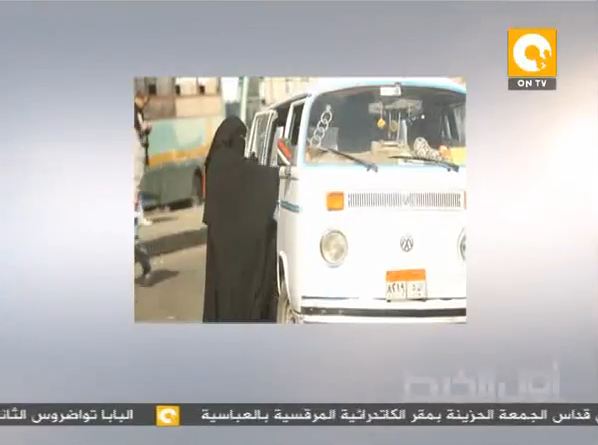Published: 25 April 2013
Country: Egypt


The authors of the show said they tried to discuss the issue of sexual harassment through a mini social film which focus on the daily harassment against women.
The episode of “Awel el Kheet” also shed light on women who are afraid to go down the street because they expect to be exposed to harassment.
In the combination of investigative journalism forms and a talk show, “Awel el Khayt” sheds a light on the negligence and corruption in the most important social and economic issues and political problems facing the community and affects the daily life of the Egyptian citizens. “Awel el Kheet” also addresses the problems of the marginalized groups and minorities in Egyptian society.
“Awel el Khayt” has already shown the great impact on the Egyptian audience and its influence onto policy-makers. For instance, the result of the second episode, that discussed the closure of most of the 544 Takamol hospitals, was a huge media follow-up and the reaction of the authorities.
“Not only that other media in Egypt discussed the same subject after it was initiated on our show on ONTV, but the governor of Gharbia asked the health ministry to reopen all Takamol hospitals. The Governor also went to meet local people and doctors who are directly affected by the closure of the hospitals built all around Egypt, except big cities Cairo, Alexandria and Giza”, says Ali Belail, the Managing Director of Belail Media Production and co-executive producer of the show.

“But with the change of health minister, the new policy was introduced. The new minister thought that the closure of the hospitals is the solution because not all the hospitals were equipped properly and not all of them had proper building permits”, explains Nada Ismail.
“But what is the real problem that TV show on ONTV tackled is the inconsistency between two governments and lack of planning and strategy”, says dr Ramy Aly.
Aly, who holds the PhD in Social Anthropology, and Ali Belail, have founded the Public Service Broadcasting Initiative (PSBi) in 2011 as, they say, “direct output of the revolution in Egypt”. The aim of PBSi is to act as a platform for the production, dissemination and promotion of public service content.
“Media in Egypt need proper journalism and different journalistic forms. We have many talk shows and a lot of talking here in Egypt. But ’Awel el Khayt’ is well researched, coherent programme. The whole idea is to produce a relevant programing, inclusive and diverse”, says Ali Belail.
His colleague Ramy Aly is of an opinion that media in Egypt need to invest in content more. Asked to assess the level of inclusiveness of Egyptian media, Aly said:
“There is a change in our media since the Revolution. People are discussing the diversity issues more. But, I have to say, they are like the drops in the ocean. Another problem is that diversity groups and their problems are discussed in terms of a national security. Minorities are always related to majority of a population and almost never discussed as such. People are also in denial that there is discrimination and the minority groups are suffering from one dimensional approach in Egyptian media”, says dr Ramy Aly in the interview for the MDI website.
He adds though that there are many initiatives in Egypt and grass roots movements ready to support inclusive, accurate and diverse media. One of the projects which are already doing that is the making of TV programme “Awel el Kheyt” broadcasting on Egyptian ONTV and produced by Belail Media Production.
MDI has contributed to the TV programme by providing training and technical support as part of a project “Rebuilding Post-revolution Egyptian Media: EMBRACING FREE EXPRESSION, DIVERSITY AND INCLUSIVENESS” funded by Swedish International Development Cooperation Agency (SIDA).
Related article: MDI Supports Programme on Leading Egyptian TV